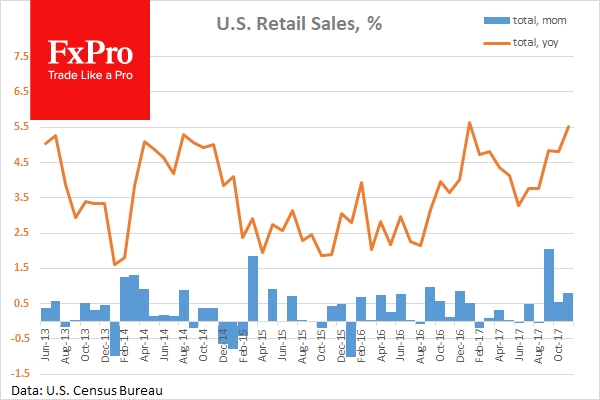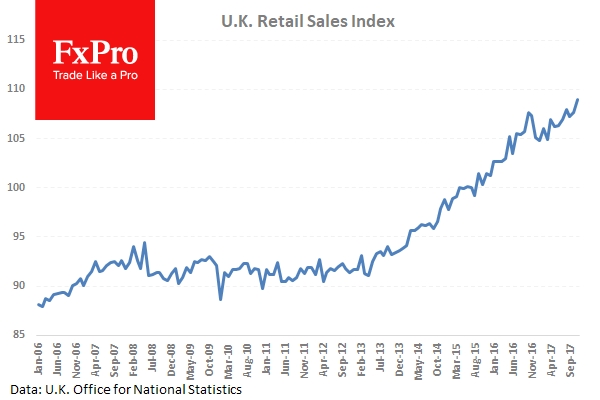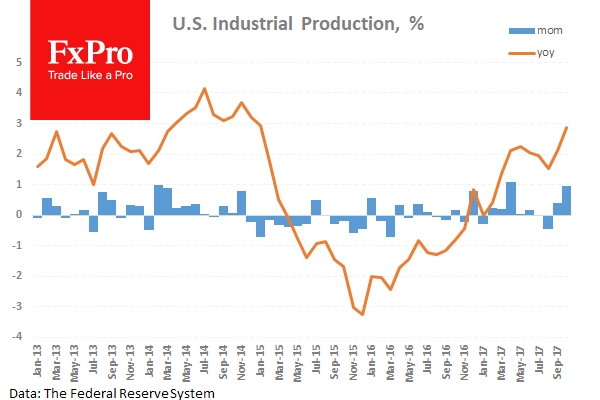Thursday saw the latest Monetary Policy Committee (MPC) report from the Bank of England. The BoE stated that “further modest increases” in interest rates are probable, as the Bank tries to bring inflation in line with its 2% target in the coming years. The MPC appeared to be unconcerned with inflation rising to 3.1% last month and voted unanimously at their December meeting to leave interest rates at current levels. The MPC is waiting to see where inflation will be in early 2018, along with the progress of Brexit negotiations, which will form a major part of their February Inflation Report.
The European Central Bank kept its ultra-easy monetary policy unchanged on Thursday, keeping interest rates low for an extended period and pledging to provide additional stimulus if required. At a press conference, ECB President Draghi commented “The difference in the monetary policy decisions and therefore interest rate decisions (with the US) reflects the different position in the economic recovery, which incidentally is stronger now in Europe. However, it is more advanced in the US. We haven’t seen (any negative effect on the euro zone economy from the divergence in policy).” Going on to say, “The incoming information, including our staff projections - our new staff projections - indicates a strong pace of economic expansion and a significant improvement in the growth outlook.”
The Swiss National Bank (SNB) kept its current monetary policy in place on Thursday, although the SNB does expect Swiss inflation to exceed its target in 3 years, a possible insight as to when it might end its ultra-loose monetary policy. SNB Chair Jordan stated that they were in “no rush at all” to start normalizing policy, whilst other central banks have started to hike rates. Jordan commented that the CHF remained “highly valued”, despite the currency losing approximately 7% in value over the last 6 months.
With inflation a somewhat “hot-topic”, the US Commerce Department on Thursday released data showing US retail sales rose more than forecast in November and the previous month was revised higher, indicating a broad strengthening of consumer demand as the holiday shopping season got underway. November retail sales rose 0.8% with a revision of Octobers data up to 0.5% from the previously released 0.2%. In the UK, the Office for National Statistics released Retail Sales data for November that showed sales volumes were up 1.1% in the month, exceeding the 0.4% forecast by the market.
EURUSD is little changed overnight, trading around 1.1783.
USD/JPY is unchanged in early session trading at around 112.35.
GBP/USD is trading around 1.3436.
Gold is 0.15% higher in early Friday trading at around $1,255.
WTI is 0.1% higher, trading around $57.20.
Major data releases for today:
At 10:00 GMT: Eurostat will release Trade Balance data for the Eurozone for October.
At 13:15 GMT: Bank of England Chief Economist, Andrew Haldane, is scheduled to speak at the 26th International Rome Money Banking and Finance Conference in Italy.
At 14:15 GMT: The Board of Governors of the Federal Reserve will release US Industrial Production (MoM) for November. Forecasts suggest a release of 0.3%, which is significantly lower than the previous release of 0.9%. The markets could experience USD volatility if the release is dramatically different from forecast.
At 14:15 GMT: US Capacity Utilization for November will be released by the Federal Reserve Board. Forecasts suggest a modest improvement to 77.2% from Octobers’ 77.0%.
At 18:00 GMT: The Baker Hughes US Oil Rig Count will be released. The number of active US Oil Rigs has grown throughout 2017, with the last release showing a count of 751. As more active rigs come online production increases which can dampen crude prices.



